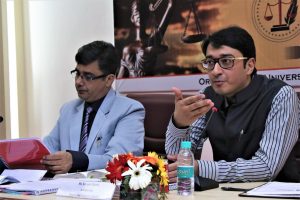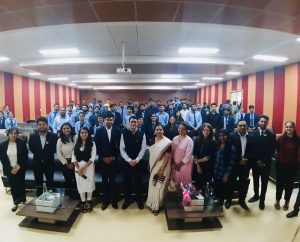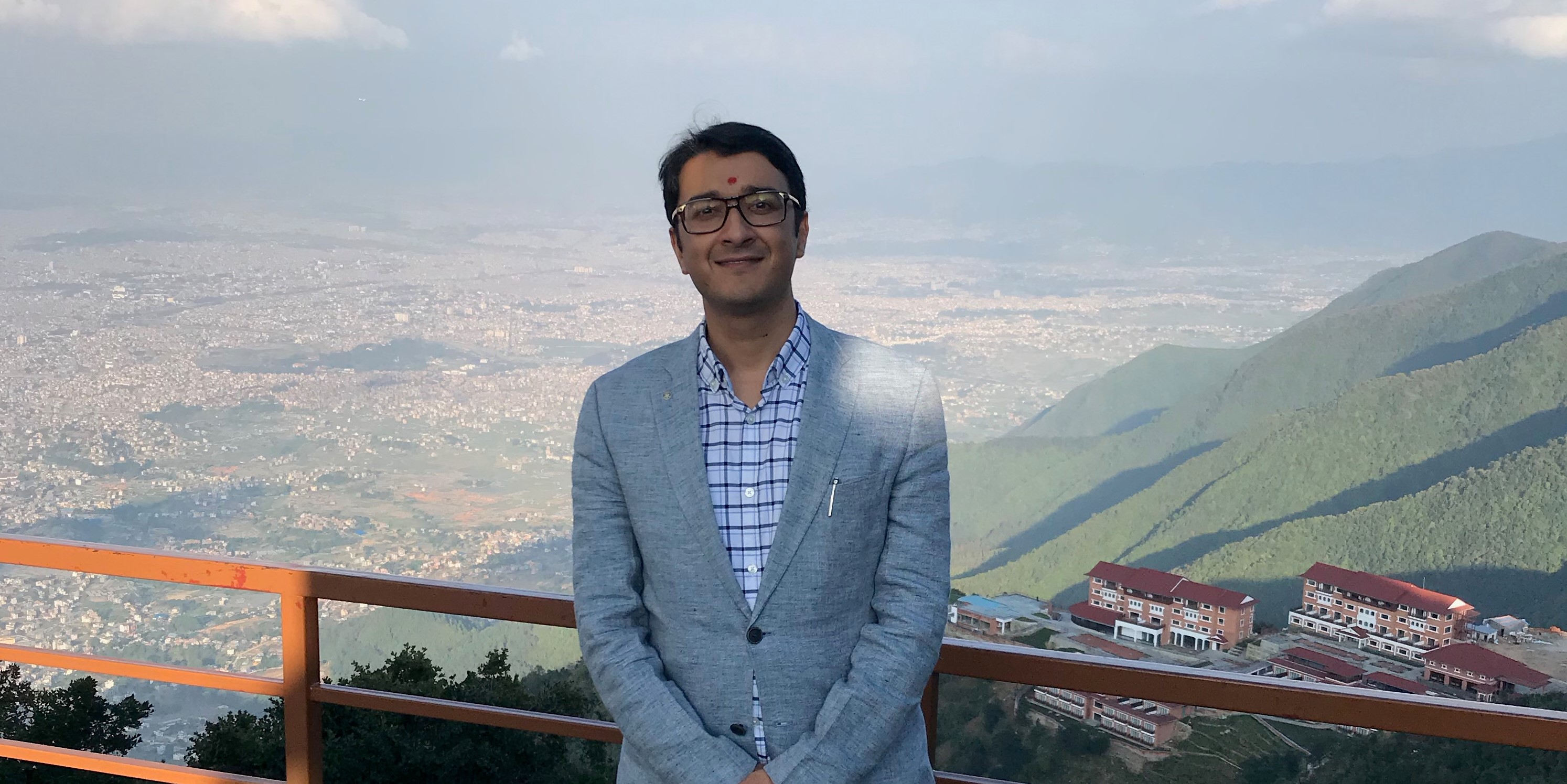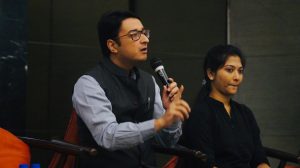What inspires you as a lawyer? What do you think is the best part of the job of a lawyer?
About inspiration
Well frankly, every day when I get up I ask myself a very basic question, “whether I am going to be an impediment or a facilitator in the course of justice”. The system I represent has many stakeholders. They are my clients, my office colleagues, the opposite counsels, the court staff, the Judges and of-course the civil society amongst others. What I do directly or indirectly affects them all. The fact that I am one of the stakeholder in this noble profession inspires me everyday.
Best part of being a lawyer
The best part is people look upto you with lot of trust and respect. They know the position a lawyer holds in the society. A lawyer at any given day is a reservoir of knowledge and holds key elements of practicality to enable people to get justice. We must remember that lawyers are the balancing act between anarchy and rule of law and in a way are the conscience keeper of society through the Court system.
What made you interested in Criminal law?
I have always believed that practicing on a criminal side gives you a certain advantage and also a different kind of foresight into human psychology besides helping you understand the mind of a judge.
As luck would have it most of my internships were on the Criminal side. However it was only when I started my career that somehow people started referring criminal matters to me. I still remember when I was in Dubai there were few prominent matters on the criminal side which were marked to me because of my prior internships on the criminal side. This helped me hone my skill as a Criminal Lawyer.
Also when I returned to India my friends were not practising on the criminal side and were kind enough to refer me matters. It was only later in Tis Hazari Court where my stint as a junior lawyer I practised majorly on the criminal side and had the privilege of conducting trials and following certain cases with appeals. Rest as they say is history.
 What are the challenges faced by an independent practitioner at an initial stage?
What are the challenges faced by an independent practitioner at an initial stage?
There are quite a few actually. The first and foremost is understanding the system and people who work in it. For example to handle a registry official requires a different tact than a judge when you are arguing your matter. Similarly you have to be kind to your friends and colleagues and have to have an understanding of what your Boss/Senior requires of you. When you are fresh at bar you do not know how to handle different people differently and this itself requires time in order to build an equation and reputation at the Bar.
Secondly one constantly needs a steady source of income and work. If you don’t generate work you won’t make money. So one needs a clientele which keeps your office running and in good health.
Thirdly you have to know the law and the procedure as being a lawyer you can not be caught underprepared or unaware. That’s enough to finish you off in your early stages.
Lastly an office space is a must in order for client to take you seriously. You need a space where you can call your client, have a staff and conduct your meeting. That again requires a certain amount of capital and you have to keep the show running.
Describe your experience of working in an international law firm. How did it inform and shape your skills and outlook as a lawyer?
So the first thing they teach you is how to write emails! Well it is an important craft as this is where you are trained to put your thoughts in order and how to be polite to the client and at the same time convey your message affirmatively.
Amongst other things I think are how to deal with different clients differently as each of them have a different legal requirement. So if a shipping dispute comes your way it may have elements of insurance and re-insurance. However if you are asked to work on a dispute involving Oil and Gas or Construction you have to handle it differently.
This is where an international law firm shapes up your outlook and approach to cater to different clients differently. You are like a tailor. One suit doesn’t fit all.
 How can an Indian lawyer get a job in Dubai? How to go about it if I am interested?
How can an Indian lawyer get a job in Dubai? How to go about it if I am interested?
There are firms which are always looking for expats. You can directly drop an email to their HR with your resume and await an interview call. Also a lot of them also have tie ups with head-hunters and one can get in touch with them to see if there is an opening somewhere. The hiring of any lawyer will eventually depend on their skill set, experience and vertical/area of expertise whether the firm that you are applying to has an opening or not.
Describe your experience of working with senior advocate Amit Sibal. What are your top 3 learnings from him?
It was great. He is a phenomenal lawyer and an extremely dedicated and hardworking person. I don’t think he sleeps much. Also if he has marked you a file you, he would himself know it inside out and even better than a briefing lawyer. So as a junior in his chamber you have to be always prepared and be as ready with the file as he is.
My three learning from him are the 3 C’s he taught me. Clarity, Conscience and Case Law. Clarity of facts when you are given a matter. While arguing have to knock at the conscience of the Court and thirdly back your matter with Case Laws.
Could you tell us about three of your most challenging cases? What were the challenges you faced while working on them?
There have been lots. I can’t point at one in particular as every case comes with its own sets of problems and challenges. But I’ll illustrate a few.
There was a criminal matter which was marked to me when I was with Clyde & Co. A European Company who was the client of the firm called as 4 of its employees were arrested and their passport impounded because an Indian worker had died on site.
When I was given this task, as per Sharia Law, there is a concept of blood money and pardon by the family of deceased. The family was based out of a remote village in Punjab and I made sure that they were provided the blood money seamlessly and in turn gave pardon to the clients in writing and they were released and acquitted in the matter.
Another case I concluded a few years ago was in helping a Senior citizen evict his sons from his property who were troubling him and his bed ridden wife (suffering from Alzheimer’s) after a long winded battle in Delhi High Court. Multiple cases were filed by the sons which got dismissed and we later won the case in their favour and also by way of a landmark judgment outlaying the criteria and scope of Maintenance and Welfare of Parents and Senior Citizens Act, 2007 titled. This was widely circulated amongst online legal and other media platforms.
One case I took on 5-6 years ago before was getting a Swedish Client relief from NCDRC. It was a dispute against a big builder who had taken his earnest money and had not build the property (which is now common place). I had filed a parallel criminal proceeding and within 11 months got the relief to client from NCDRC with 12% interest on his principle amount. Now I don’t think one even gets a second date that easily in NCDRC. It was one of the first builder cases in the country to get such a quick relief.
 Tell us about a case and court performance that you are particularly proud of.
Tell us about a case and court performance that you are particularly proud of.
So recently I was representing an accused of a sexual offence matter and he was being unnecessarily harassed by the lady/complainant. So much so that his FIR under Section 354 got converted to S376!
I filed a writ in Delhi High Court complaining that the lady has been constantly calling him to settle the matter and putting his trial in jeopardy. The Court came to the rescue of this man and I helped him secure a relief by getting a restraining order against the woman in a Rape matter which was unheard of. This also got reported in media.
 What, in your opinion would be very useful advice to give to an aspiring criminal lawyer?
What, in your opinion would be very useful advice to give to an aspiring criminal lawyer?
I think to any aspiring criminal lawyer I would say do not skip Trial Court. It is where you build your fundamentals and learning curve is very steep. The art of examination and cross examination will help you life long and enable you to even assist the Appellate Court later with your understanding of Trial.
Let me give you a quick example. In 2014-15 I was appearing for State of Rajasthan in a criminal matter before the Supreme Court and one of the judge had a question about conducting statement of the accused under section 313 CrPC. The opposite counsel had no idea about how its done.
The judge pointedly asked me ‘So young man, do you have anything to say in this?’. I started explaining them about the procedure and also gave my feedback as to how it can be improved at the trial level with respect to proper participation of the Prosecutor and the Accused. The judge thanked me and asked me how do I know this. I said that I regularly appear in trial court besides appearing before the Supreme Court and this provides a valuable learning curve to me. He smiled and thanked me for my assistance. When I later saw the judgment I found my name specially mentioned with a line of appreciation. Hence Trial is a must!





















